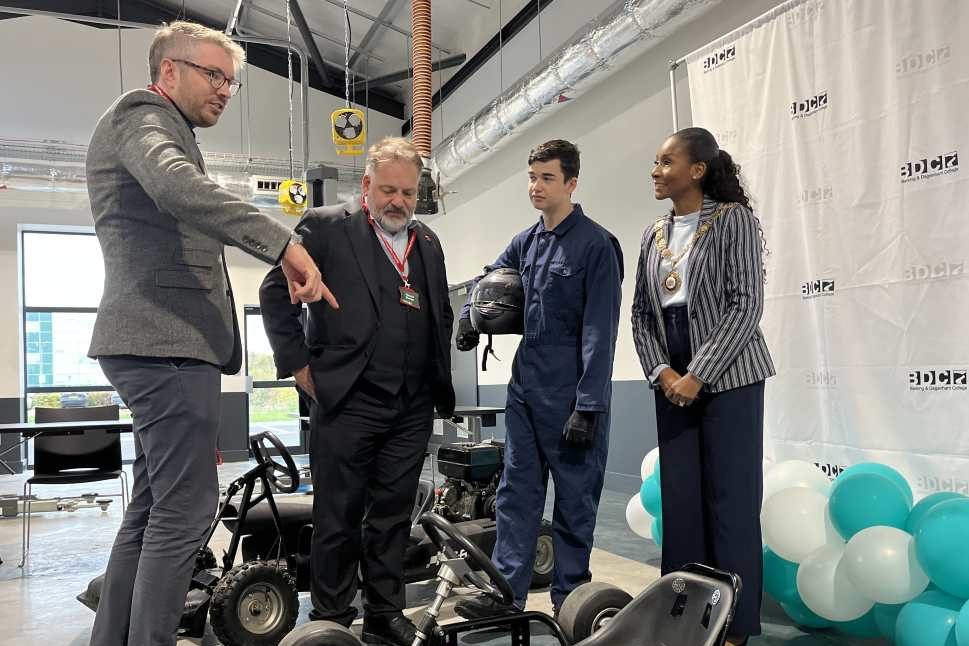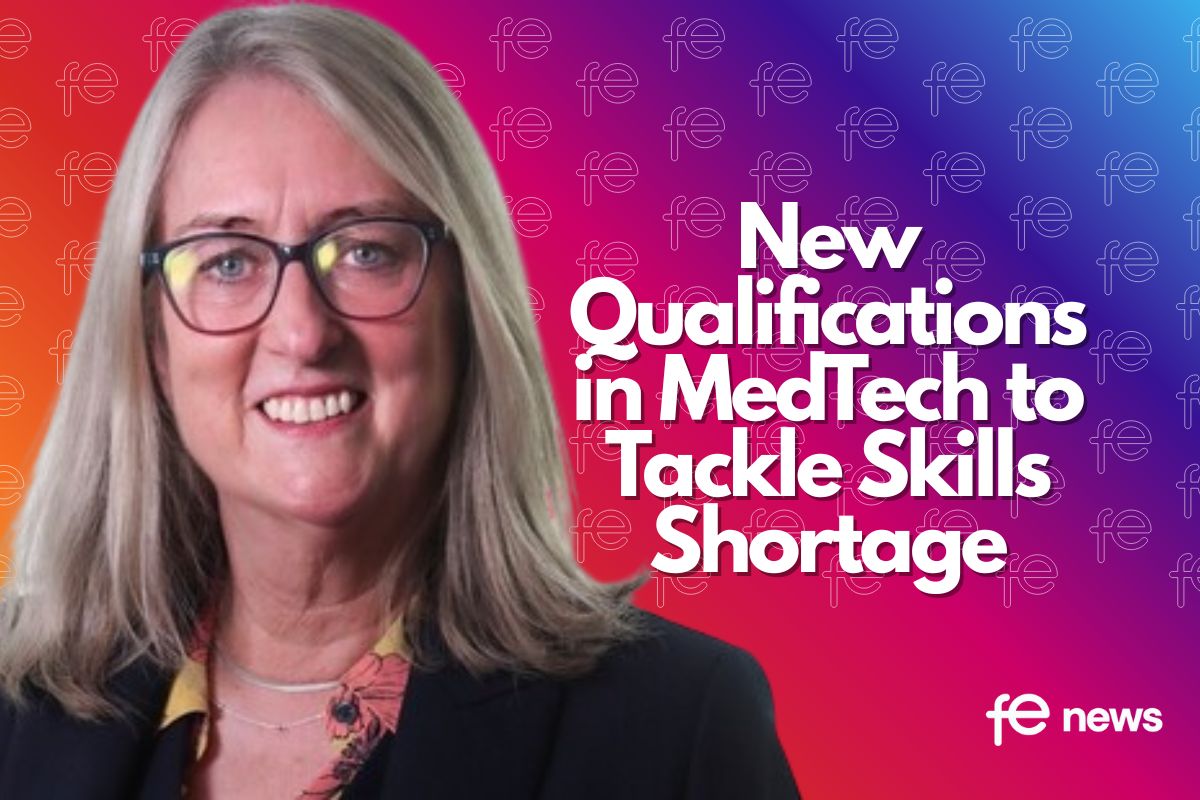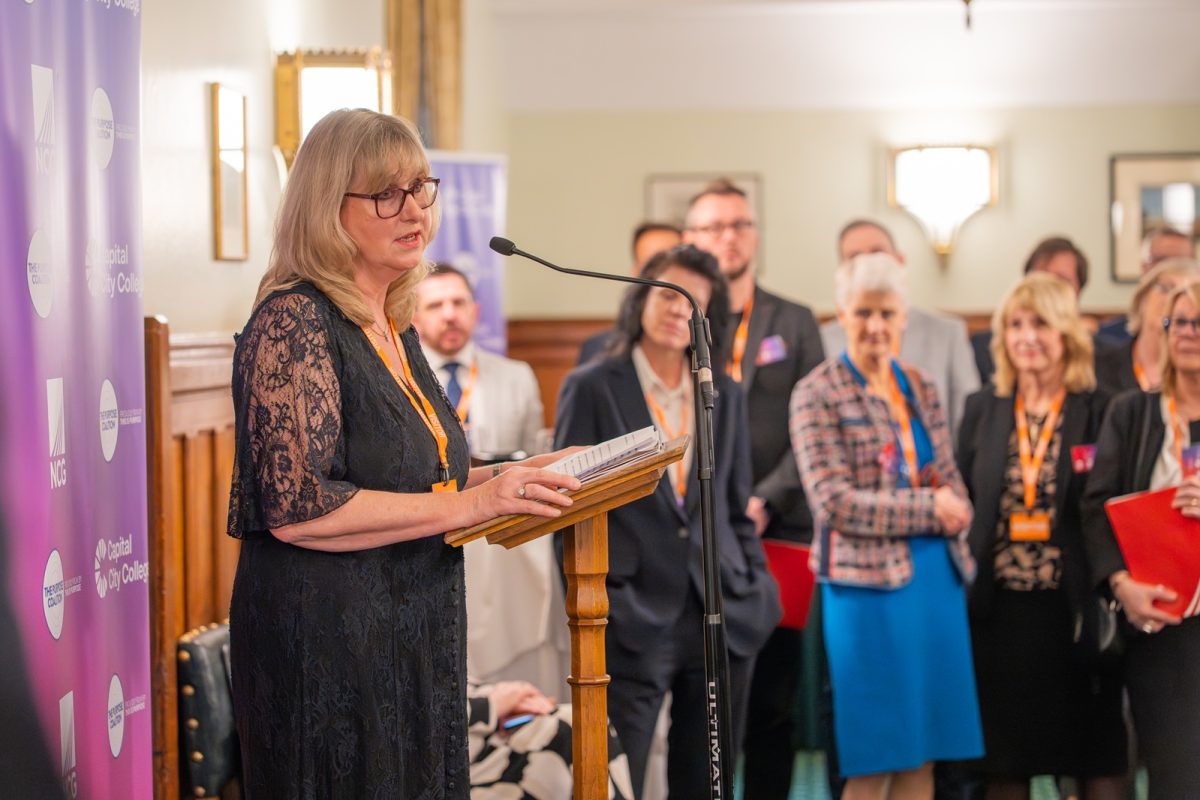Personal Education and Skills Account: Liberal Democrats commit £1 billion to save colleges & revolutionise #LifelongLearning

Layla Moran MP proposing the new Education is for Everyone: Investing in Further Education & Learning Throughout Life @LaylaMoran pic.twitter.com/47lpLePLdQ
— Roz Smith (@RosalindRogers) September 15, 2019
The Liberal Democrats have committed to a £1 billion investment package for colleges and an overhaul in how adult education is funded.
The proposals, passed yesterday (15 Sept) at the party’s autumn conference in Bournemouth, commit the party to increasing further education spending, extend the Pupil Premium to students aged 16-19 and give all adults a new Personal Education and Skills Account in order to fund lifelong learning.
Speaking after the debate, Liberal Democrat Education Spokesperson Layla Moran said:
“It is vital that we invest in our colleges and in all-age education. When half of students do not attend university and as most of us can expect to change careers over our working lives, we cannot afford not to.
“The Conservatives are failing to prepare our workforce for the challenges ahead – be it the AI revolution, the ageing population, or their own catastrophic Brexit policy. Our colleges and adult education centres have been left underfunded and unloved.”
“Liberal Democrats are the party of education – from the early years right through to adulthood. That’s why we’ve committed to a massive investment package for our colleges and new Personal Education and Skills Accounts that give people the power to decide how, when, where and what they learn.”
The full text of Motion F19, ‘Education is for Everyone’, can be found below:
Conference notes that:
- Annual funding for a student in 16-19 education in England has fallen by 18 per cent in real terms since 2010 and two in five further education colleges are in deficit.
- The Adult Education Budget has been cut in real terms since 2015 and less than two per cent of the Government’s education spending is for adult learners.
- The UK faces a serious skills deficit, with many business leaders expressing concern that too few workers have the necessary skills to meet their future job needs.
- Almost half of all current workers will retrain completely during their career and this proportion will increase as economic and technological change accelerates, and people work for longer.
- Many adult learners struggle with the cost of education and are reluctant to take out loans because they have work, mortgage and/or family responsibilities.
Conference believes that:
- The right to an education, to learn new skills, to nurture creativity and to develop one’s talents is for everyone of every age.
- Successive governments have grossly underfunded further and adult education in comparison to schools and universities, even though half of school leavers do not go on to university.
- Too many people feel disempowered because they lack the skills and/or qualifications to advance their careers in a changing economy.
- Adult education is vital for people who struggled with formal education and provides learners with substantial cultural, economic, health and social benefits.
Conference calls on the Government to reprioritise further education by:
- Significantly increasing 16-19 education funding at the next spending review, setting out a timetable to raise by 2022 the core funding rate for full-time students aged 16-19 to match that of secondary school pupils.
- Extending the pupil premium to students aged 16-19, with a proportion of the funding to be paid directly to students to support them with travel and other education-related costs.
- Reimbursing all sixth form and further education colleges for the VAT they pay whilst providing publicly funded courses, irrespective of whether they have converted into an academy.
- Revising the ‘condition of funding’ so that students who do not have a grade 4 in GCSE English and Maths are not required to resit the GCSE but instead can take a free course of English or Maths study suited to their needs alongside their main course.
- Extending the Teachers’ Pay Grant to further education colleges and sixth form colleges to enable them to fund a pay rise for teaching staff.
Conference welcomes the first report of the Independent Commission on Lifelong Learning, convened by Sir Vince Cable MP, and calls on the Government to:
- Introduce a universal Personal Education and Skills Account (PESA) for adults in England.
- Make three payments into an individual’s PESA when the account holder turns 25, 40 and 55.
- Make additional payments in response to certain life events (e.g. redundancy), to combat socio-economic inequality, and to encourage workers to retrain into shortage occupations.
- Offer tax relief or match funding to incentivise account holders and their employers to pay into their PESA.
- Encourage local authorities and city regions to make discretionary payments into PESAs to incentivise education and training in their areas.
- Enable account holders aged 25 or over to use the money saved in their PESAs to pay for any accredited education or training course.
- Provide free careers guidance to anyone wishing to use the money in their PESA to support them to choose a course that will help them achieve their personal or career development aims.
Conference further recognises that the creation of a culture of all-age education requires more than additional funding and calls on the Government to:
- Address supply-side problems in adult education so that everyone can access education and training near where they live.
- Create a right to request time off or flexible working in order to undertake approved education or training.
Conference reaffirms the Liberal Democrat commitments to support people who do not attend university by:
- Boosting the quality and quantity of apprenticeships, as set out in Policy Paper 133, Good Jobs, Better Businesses, Stronger Communities: Proposals for a New Economy that Really Works for Everyone, including by transforming the broken Apprenticeship Levy into a Skills and Training Levy.
- Reducing the cost of travel to school, college or work for young people, such as by introducing a bus discount card for people aged 16-21.
Applicability: England only; except b) (lines 76-77) and 1. (lines 80-84) which are Federal.











Responses